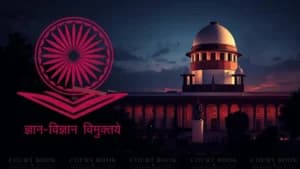The Punjab & Haryana High Court recently clarified that just because drugs were recovered from a transparent bag, it cannot be assumed that the police falsely planted the contraband. The Court made this observation while denying bail to an accused in a case registered under Section 22(c) of the NDPS Act, involving commercial quantity of drugs.
“If the claim is that police falsely implicated the petitioner by planting drugs, then it is also unlikely they would use a transparent bag for such an act,” said Justice Manisha Batra, while rejecting the bail plea.
Read Also:- Punjab & Haryana High Court Orders Notification of Mental Health Rules Within 60 Days After 7-Year Delay
The accused had argued that no sensible person would carry contraband openly in a transparent bag since it increases the chances of getting caught. Based on this, he claimed that the drugs were planted by the police. However, the Court stated that this same logic applies to both parties. If carrying drugs openly seems unreasonable, it is also unreasonable to believe that the police would use a transparent bag to falsely implicate someone, as that would immediately raise suspicion.
"It creates a logical standoff where neither side's behavior aligns perfectly with rational expectations," the Court noted.
Justice Batra explained that if the police intended to falsely frame someone, they would more likely use a concealed or non-transparent container to avoid doubt. Similarly, it is not logical that the accused would knowingly carry drugs in a see-through bag.
The Court emphasized that such arguments are speculative and do not support a strong claim of false implication. Therefore, the presence of a transparent bag does not automatically prove innocence or police misconduct.
"The Court cannot assess the intelligence or strategic thinking of the accused to decide whether he would or wouldn’t carry drugs in a transparent bag," the bench observed.
The Court further highlighted that the logic behind both claims—whether the accused openly carried the contraband or the police planted it—leads to uncertain reasoning. Thus, no conclusion can be drawn on this basis alone.
The case involved the second bail application by the accused, Dharminder Singh @ Tunda, under Section 22(c) of the NDPS Act. The court noted that the recovered contraband was of commercial quantity and there was no material to suggest the accused was innocent or unlikely to commit the offence again.
“On this ground alone, not even a prima facie inference can be drawn regarding false implication of the petitioner by planting the recovered contraband upon him,” the Court concluded.
The petitioner was represented by Advocate Ms. Jaspreet Kaur, while the State of Punjab was represented by Additional Advocate General Ms. Sakshi Bakshi.
Title: Dharminder Singh @ Tunda v. State of Punjab














